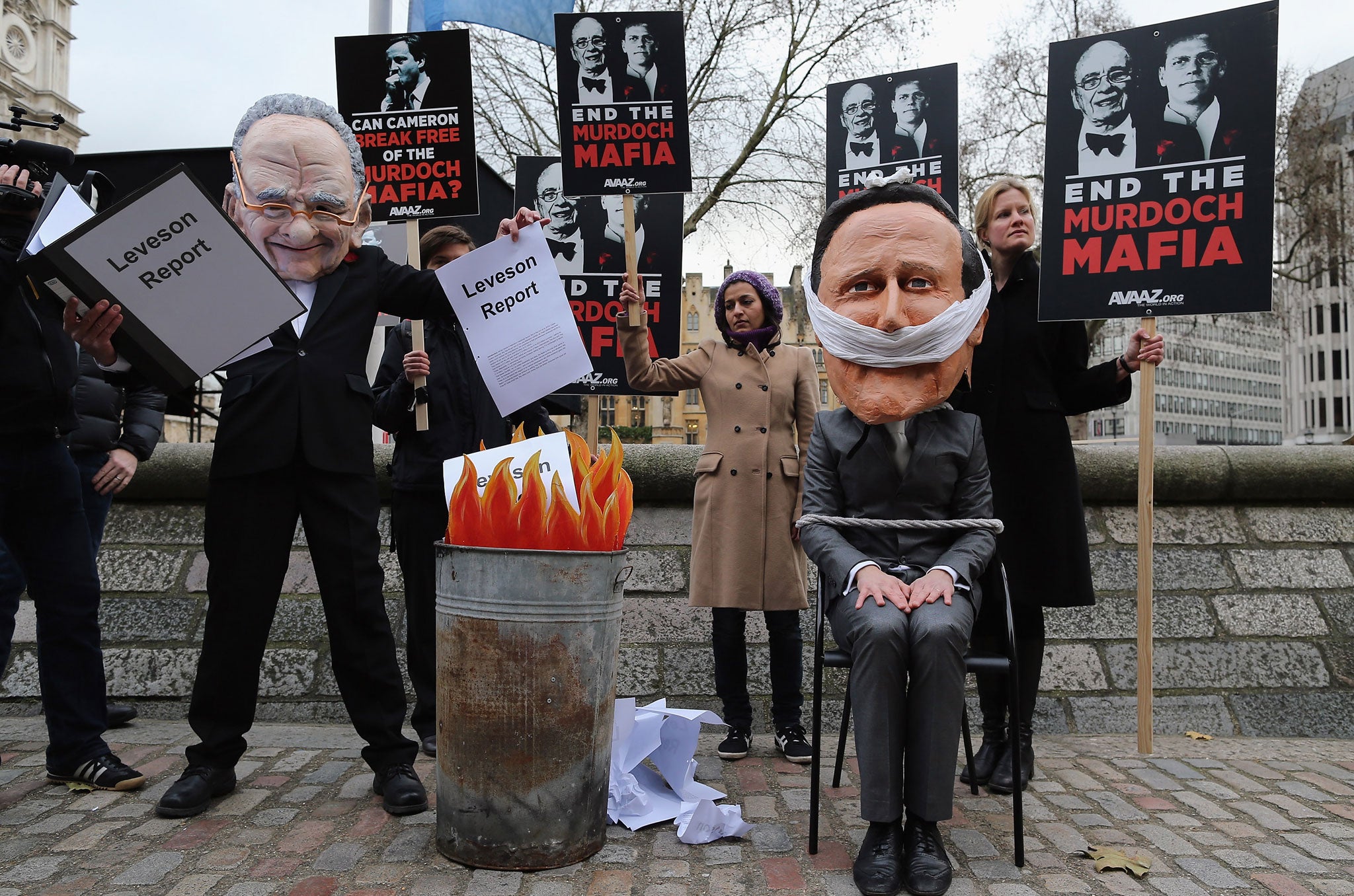Leveson was right to worry that MPs are part of the problem. We are bound at the hip to the press
Leveson's proposals were not "bonkers", they were nuanced and level headed, but will the politicians - nevermind the press - be brave enough to act

Your support helps us to tell the story
From reproductive rights to climate change to Big Tech, The Independent is on the ground when the story is developing. Whether it's investigating the financials of Elon Musk's pro-Trump PAC or producing our latest documentary, 'The A Word', which shines a light on the American women fighting for reproductive rights, we know how important it is to parse out the facts from the messaging.
At such a critical moment in US history, we need reporters on the ground. Your donation allows us to keep sending journalists to speak to both sides of the story.
The Independent is trusted by Americans across the entire political spectrum. And unlike many other quality news outlets, we choose not to lock Americans out of our reporting and analysis with paywalls. We believe quality journalism should be available to everyone, paid for by those who can afford it.
Your support makes all the difference.Watching the prime minister dance around the minor issues in Lord Justice Leveson’s report, so as to avoid the fact that he was trying to reject the central recommendation of the independent inquiry that he had set up, I couldn’t help think that the good judge was absolutely right to worry that MPs have always been part of the problem. We have an interest. We are bound at the hip to the national press. We breathe the same air as them and we fear that if we do anything they dislike we shall be deprived of oxygen. We crave their support, we need their column inches, we fear their censure. Our political futures, both as individuals and as political parties are in their gift. Just occasionally we will allow ourselves to go out on a limb on some political issue or other and hang the partisan consequences. But generations of politicians have reckoned that tackling the manifest abuses of the press is just too dangerous. And so we have, in Leveson’s words, ‘traded power and influence in ways which are contrary to the public interest and out of public sight’. We have declined to act, we have sided with the press magnates and we have let our constituents down.
Yet Leveson lays the abuses bare for all to see. It’s not just what happened to the likes of the Dowlers and the McCanns. Nor is it just the criminality that went on at the News of the World, which Leveson had to skirt around so as not to compromise criminal proceedings. It’s the countless instances where a story became so interesting that the individuals, even if they were victims of horrific crimes, stopped being human beings in an editor’s eye and became mere pawns in the business of selling papers. Personal lives became a commodity.
In this the PCC was not just incompetent, powerless and docile; it was an active cheerleader, defending the News International line that there was just ‘one rogue reporter’ long after it was clear that it was a fabrication and accepting assurances too readily because it saw defending the press as a core part of its raison d’etre.
Some say that this is all a storm in a tea cup, that the criminality can and should have been dealt with by the police and that the libel laws and the privacy clause of the Human Rights Act are sufficient, but in many cases the gratuitous abuses had no legal remedy, as the Hillsborough families know only too well.
David Cameron previously said that if Leveson’s proposals were not ‘bonkers’ then he would implement them. Well, Leveson takes a pretty nuanced, level headed approach. Whatever you may have read at the more fanciful end of the press, it doesn’t seek to introduce state regulation. Indeed the report expressly requires that the new body be independent of government and of Parliament. He even wants the industry itself to draw up its independently chaired, staffed and financed body. But crucially he reckons that without the underpinning of a change in the law to give the body legal recognition it will have no more respect from the public than the present PCC.
In Shakespeare’s Othello Cassio wails ‘reputation, reputation, reputation, O I have lost my reputation’. The press should wail with him as a large majority of the public reckon that the press is nowhere near as honest, as fair or as accurate as it should be. Instead of railing at the proposals the press should try to make them work, if only to restore their own reputation which lies even more battered today. And politicians should be brave enough to act this time.
Join our commenting forum
Join thought-provoking conversations, follow other Independent readers and see their replies
Comments